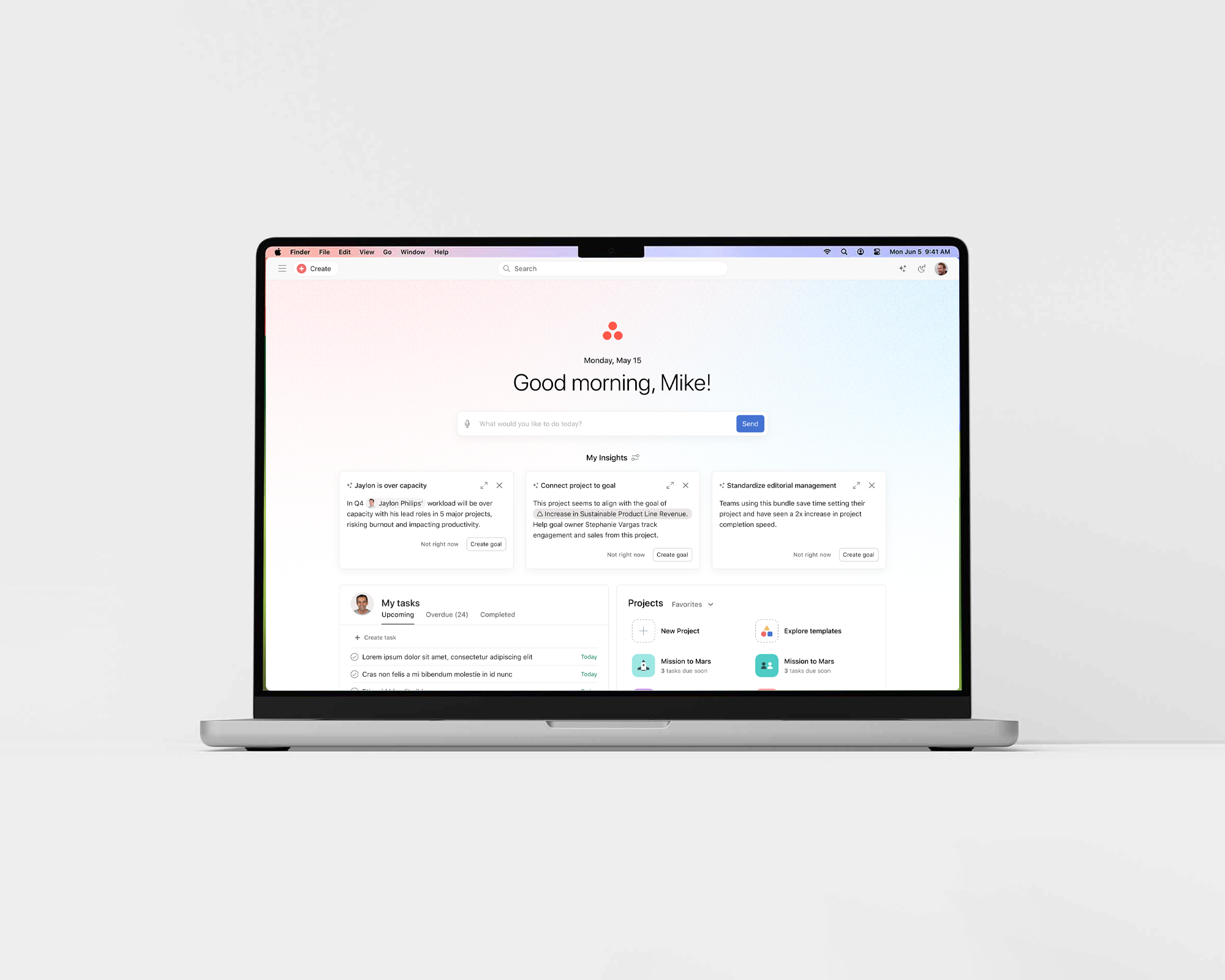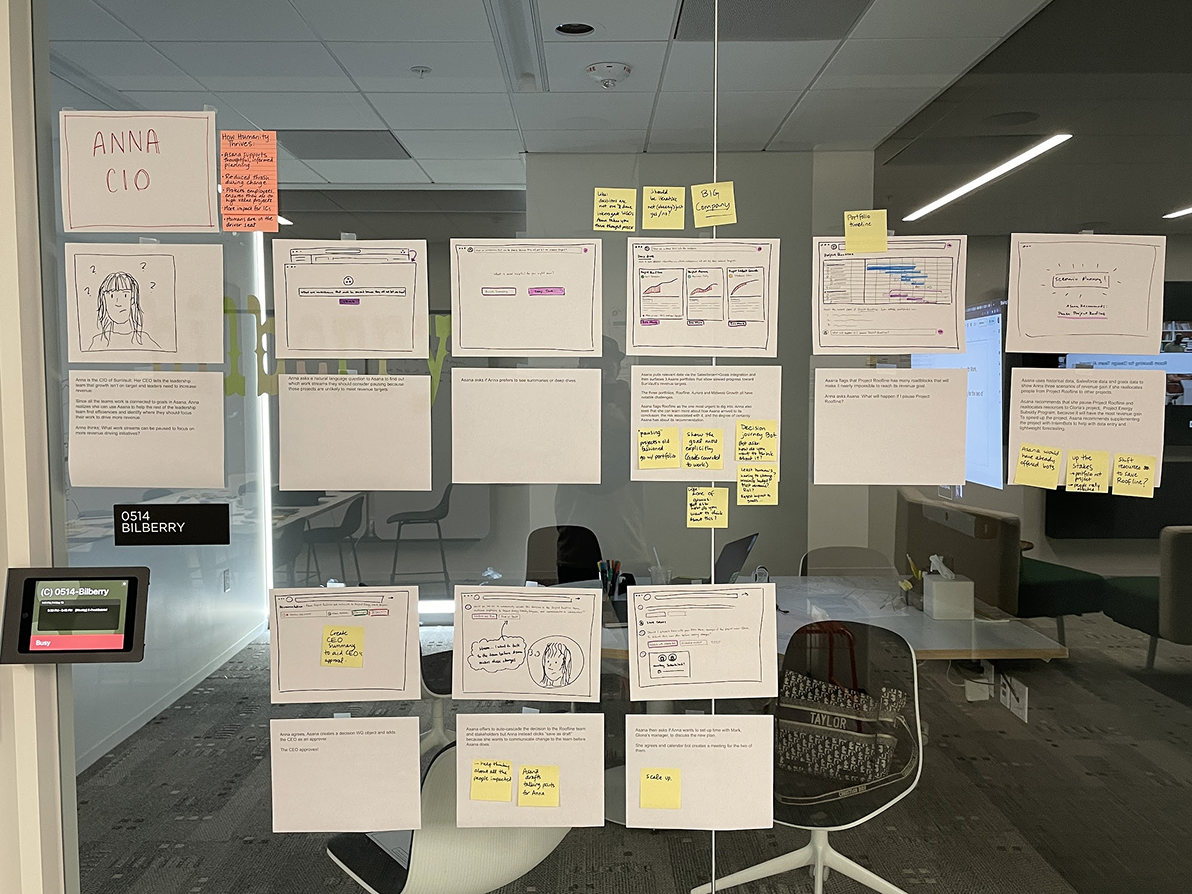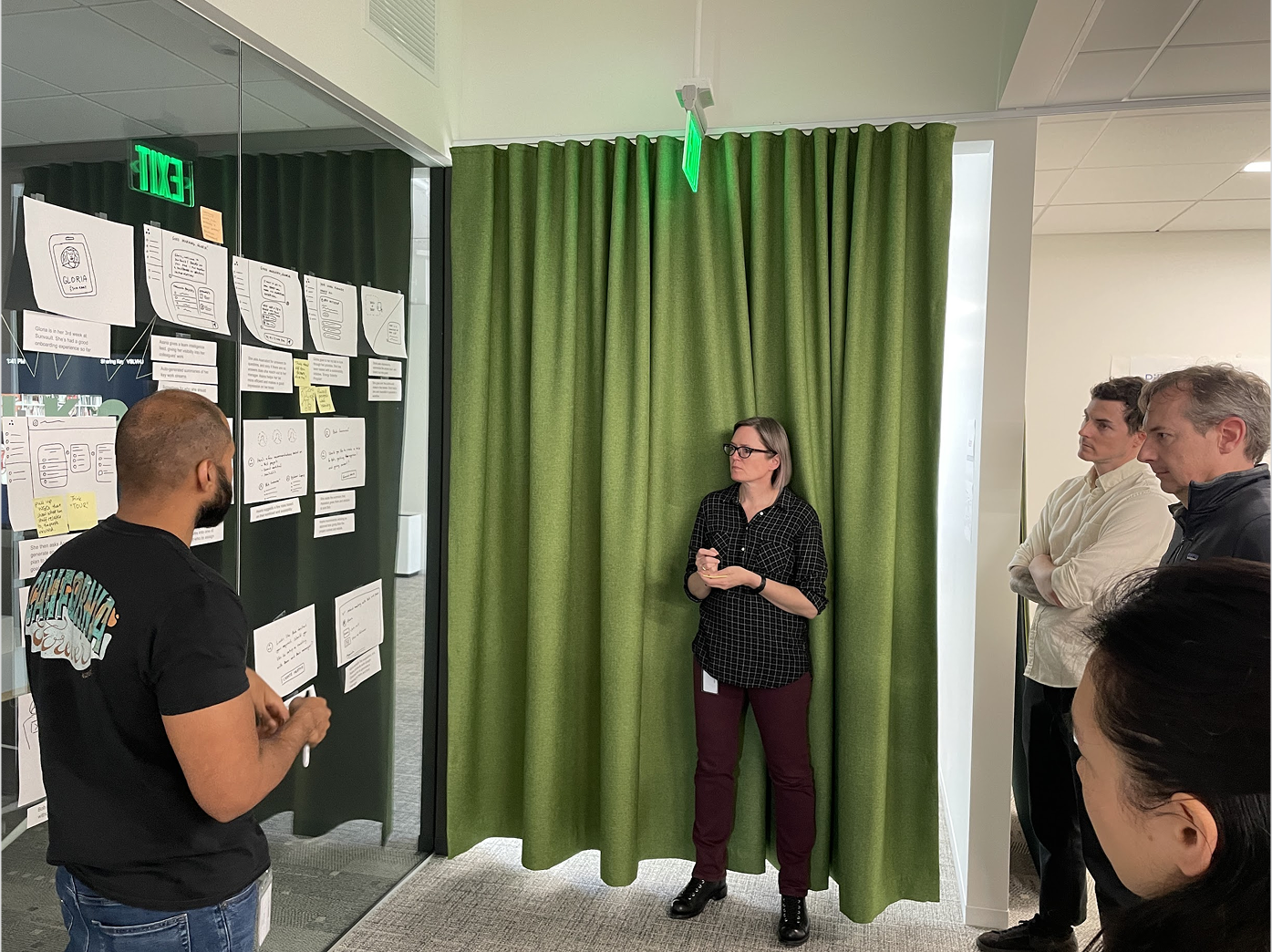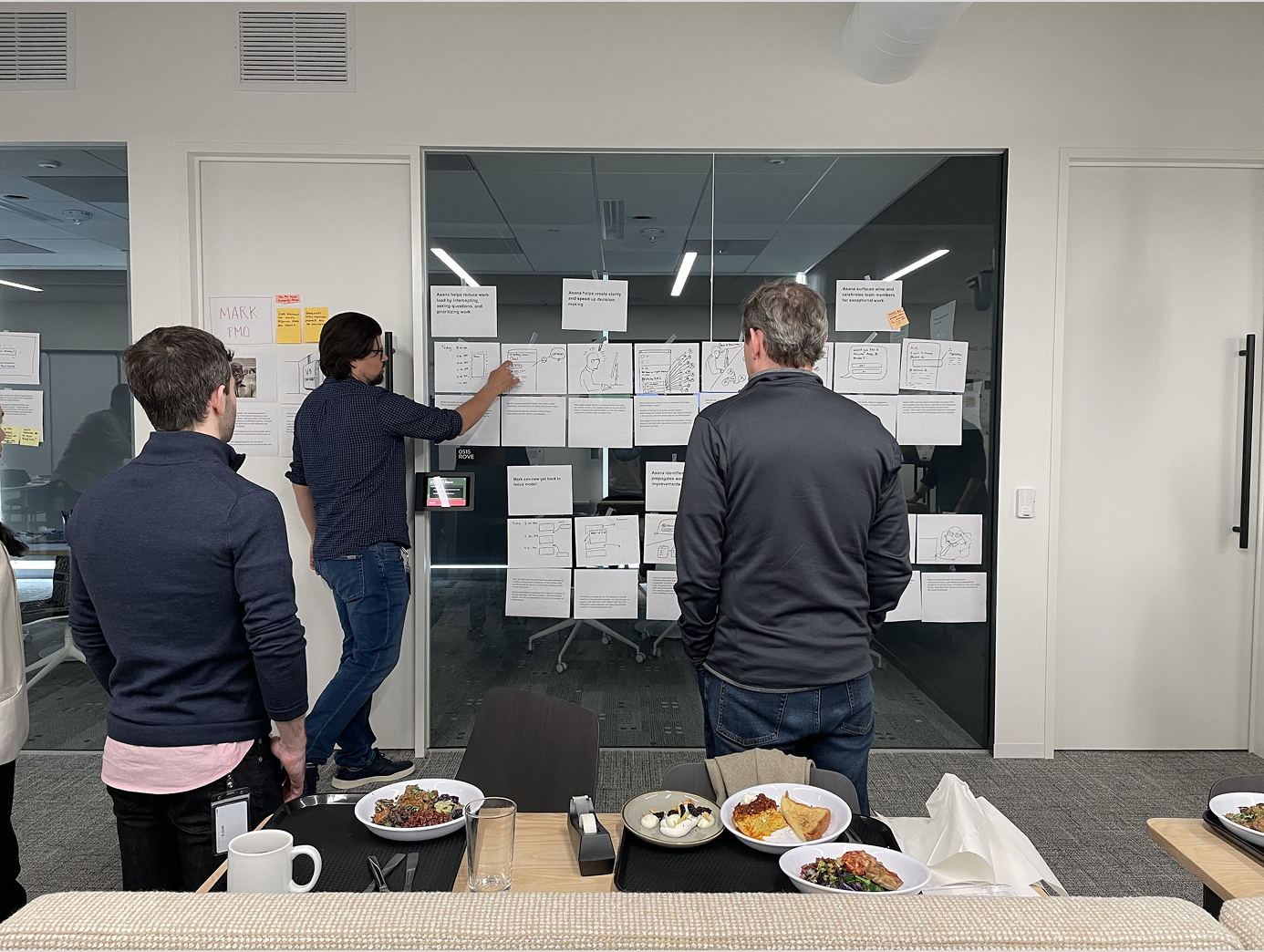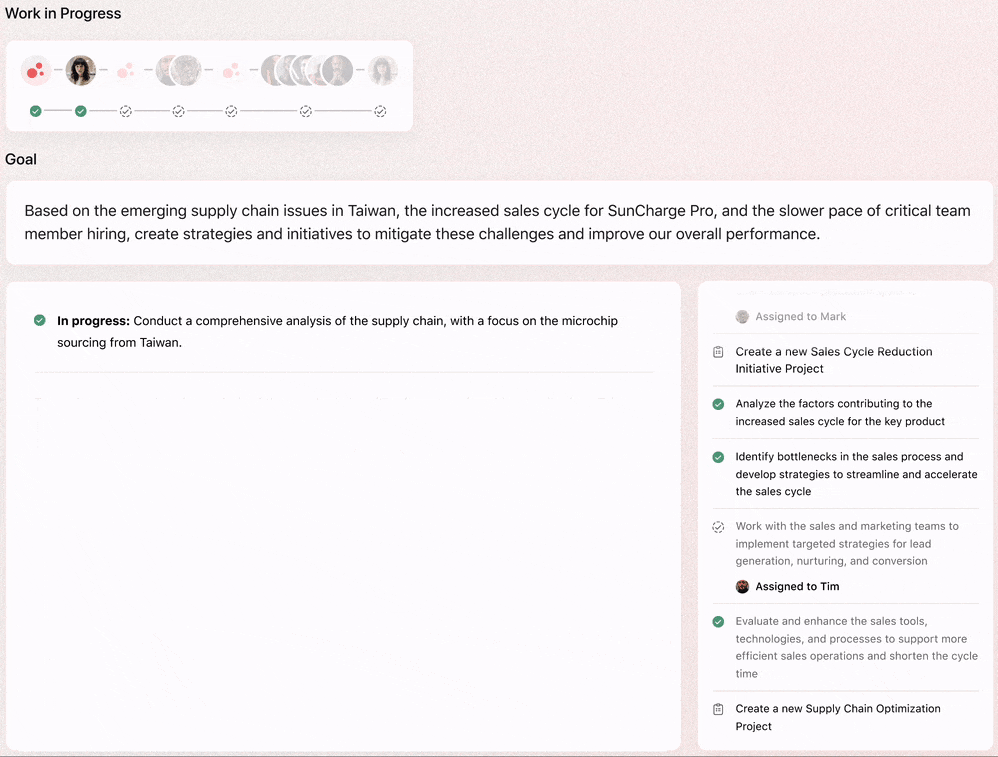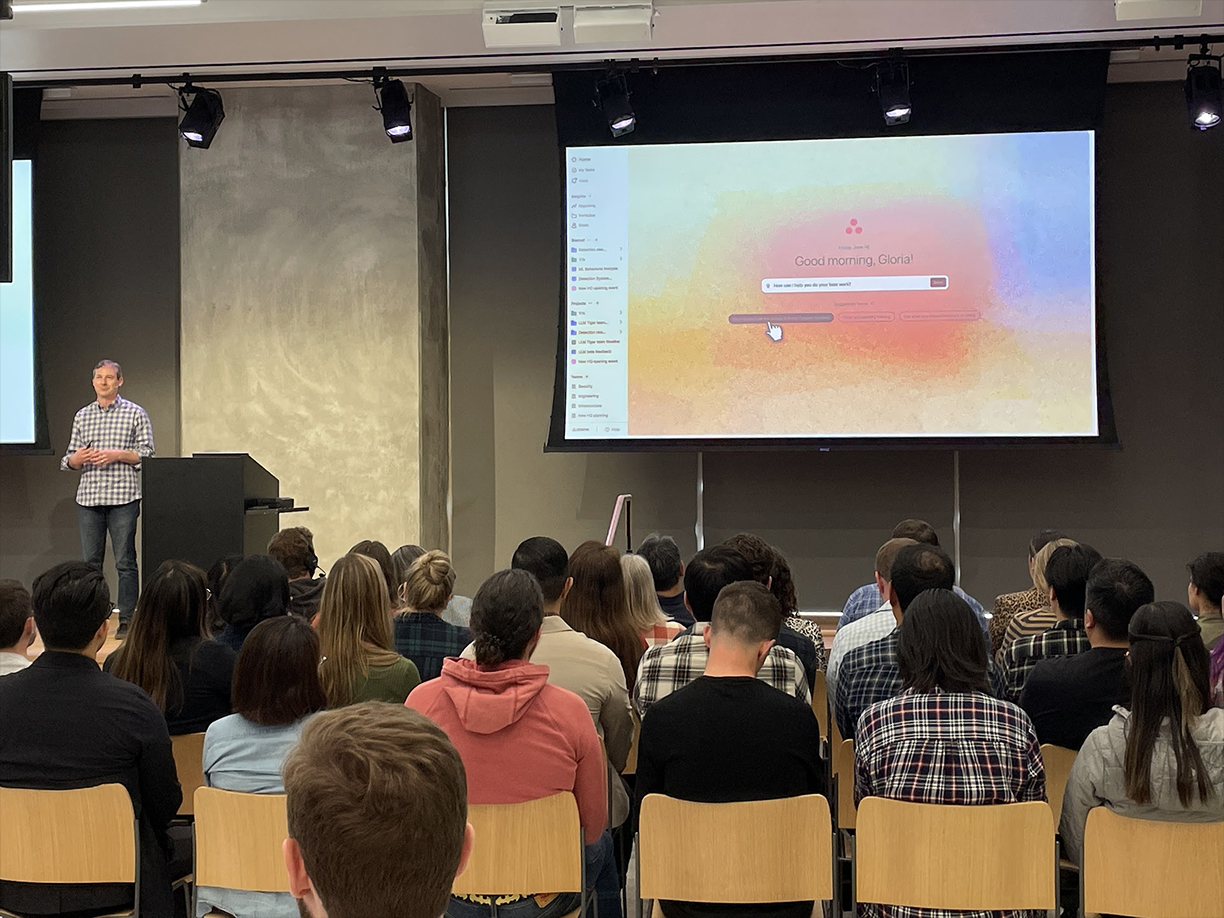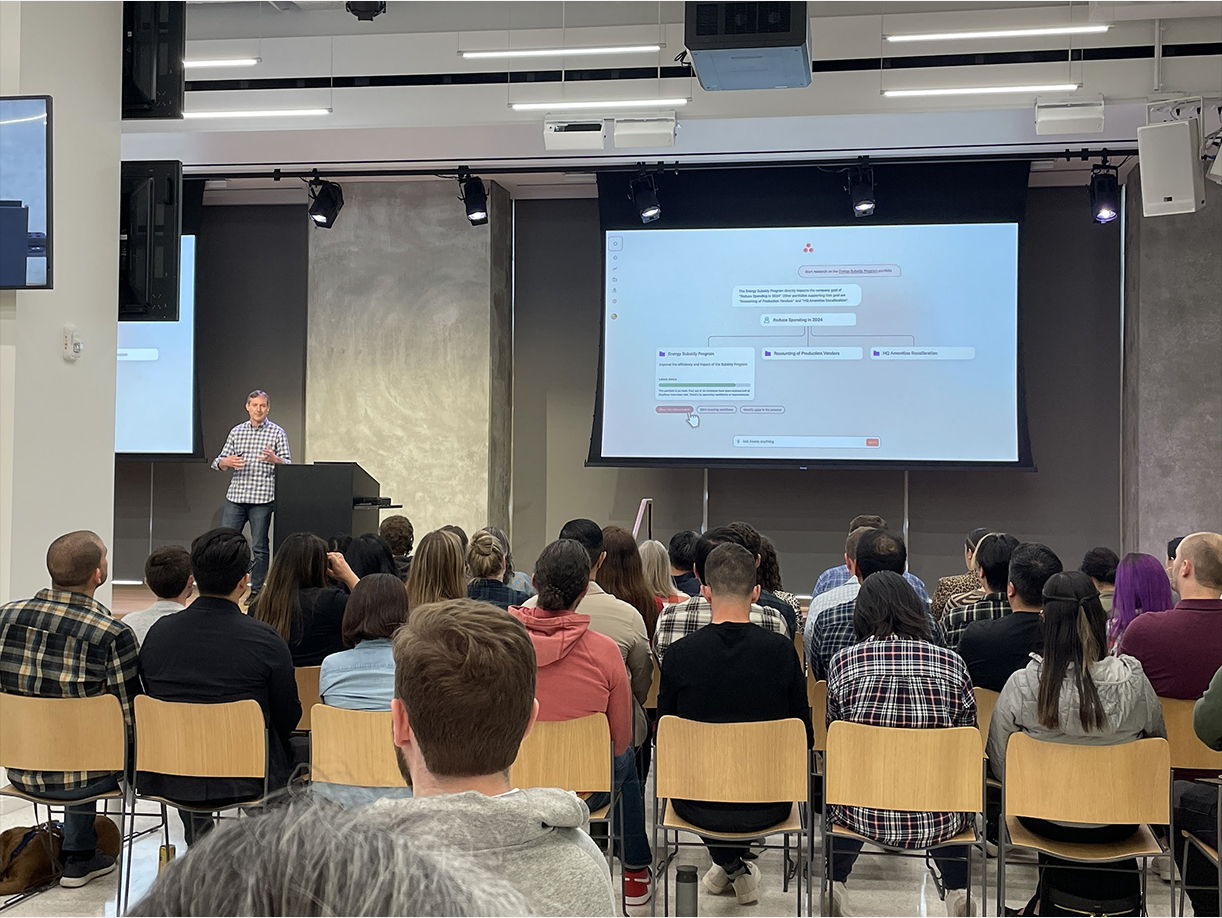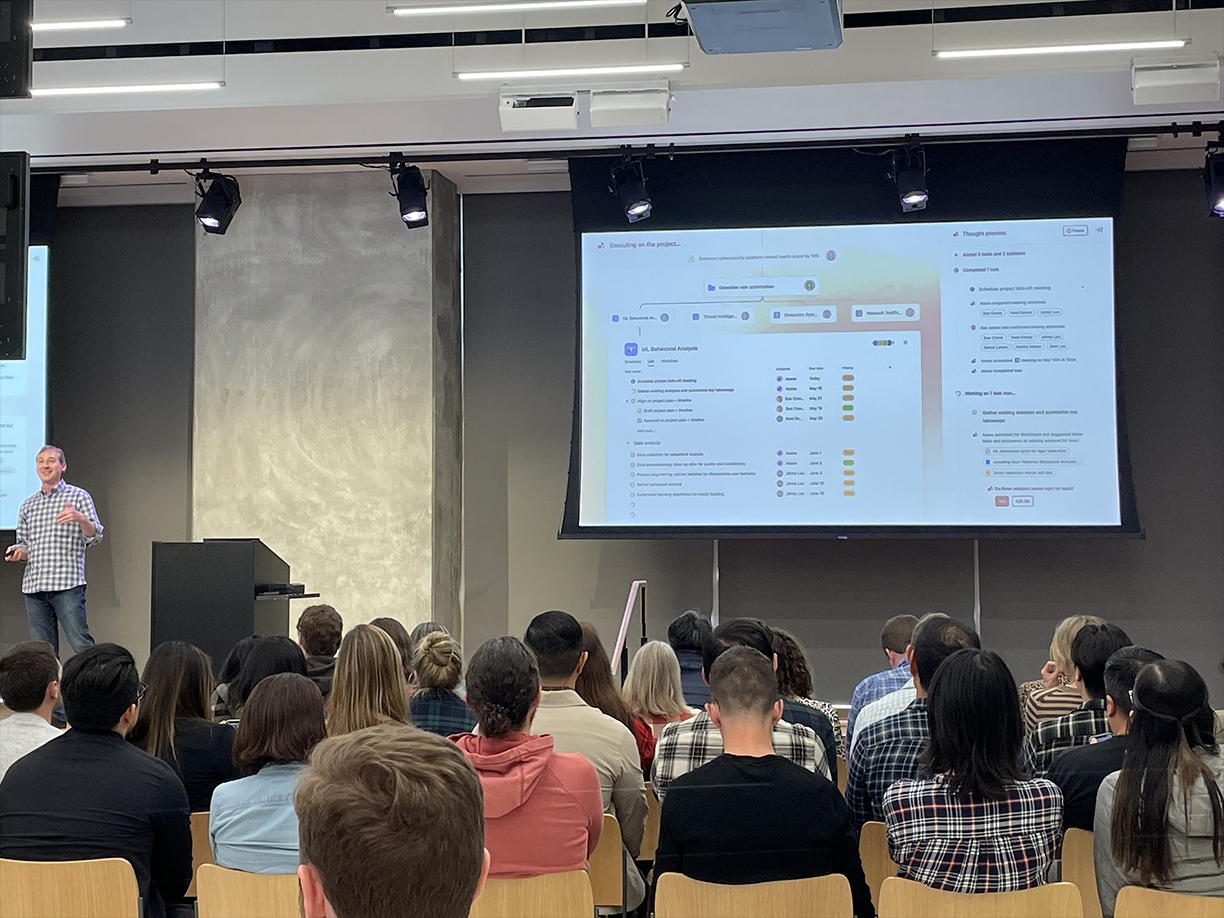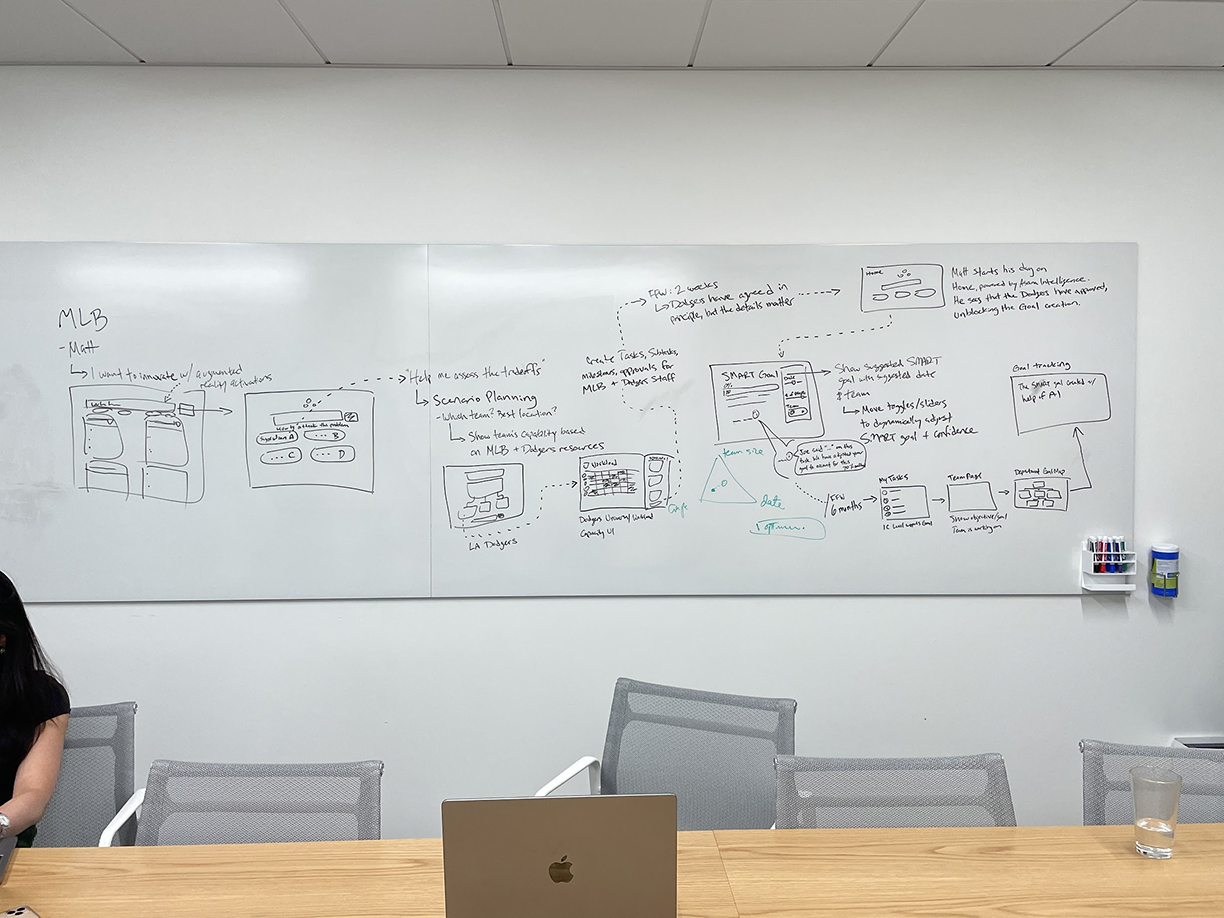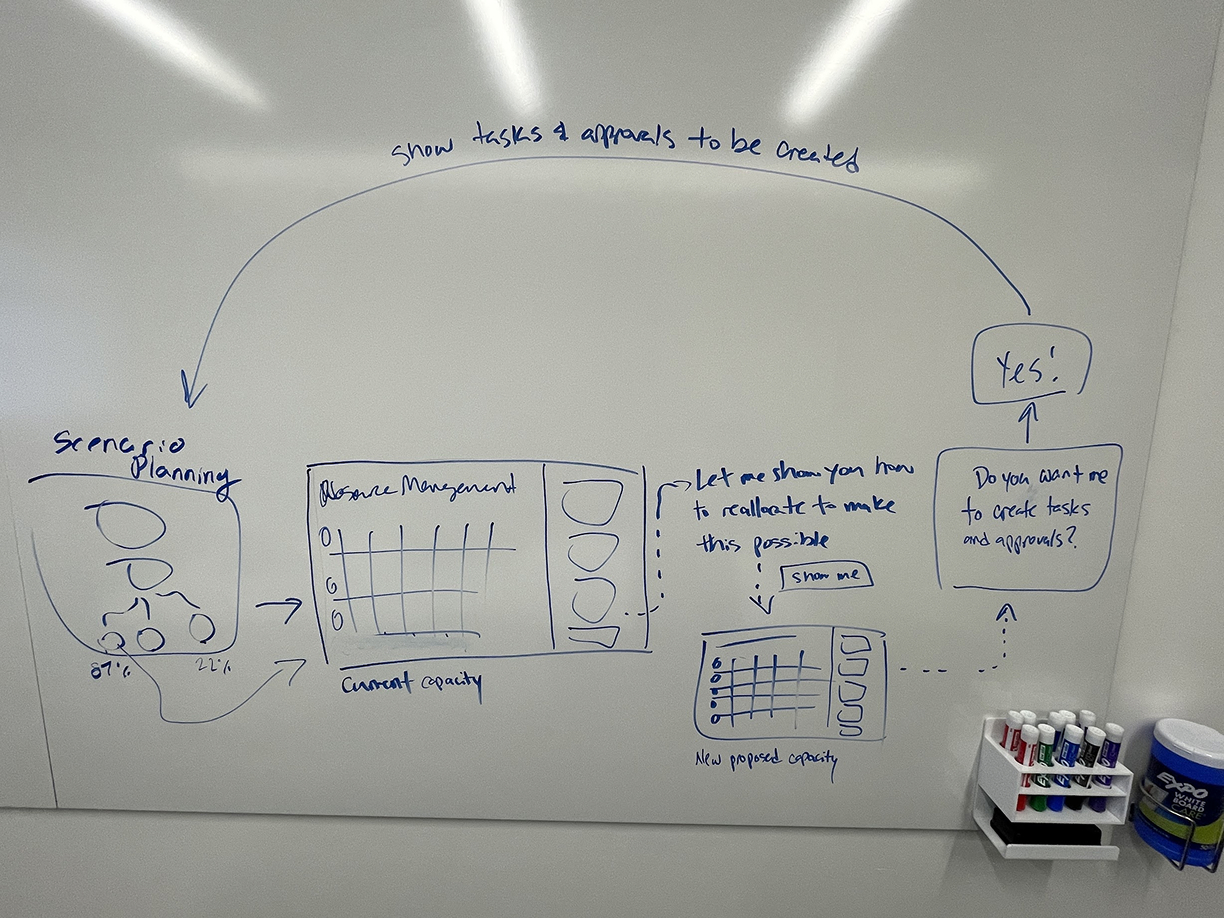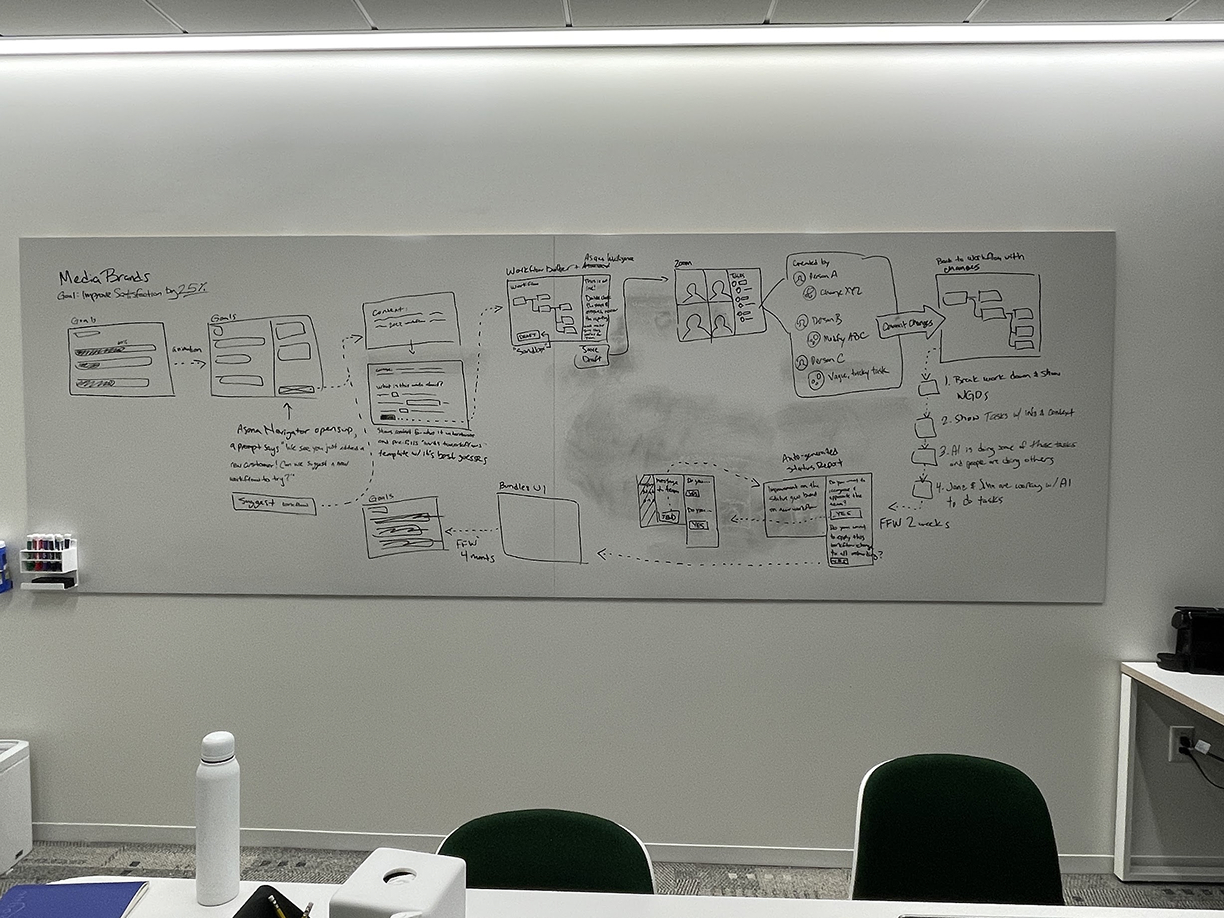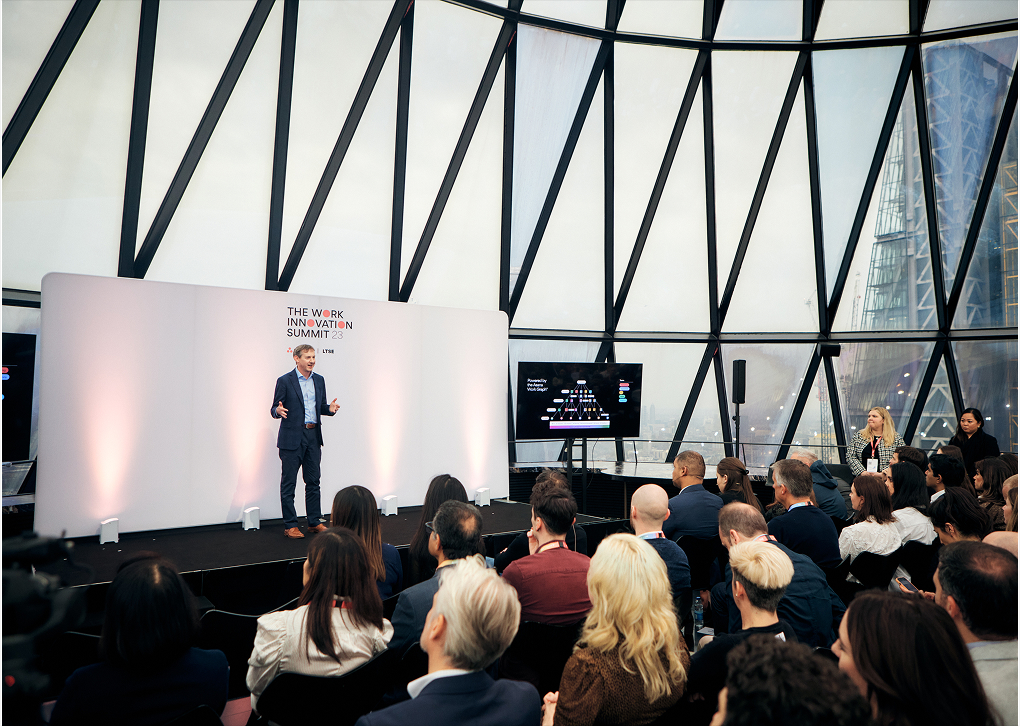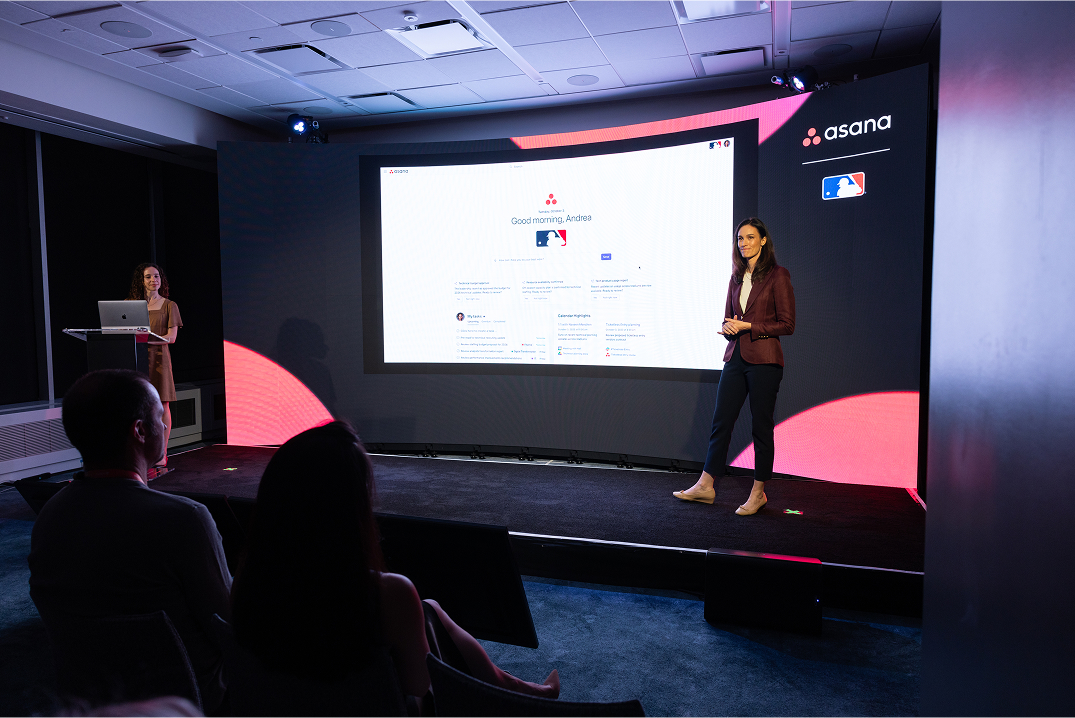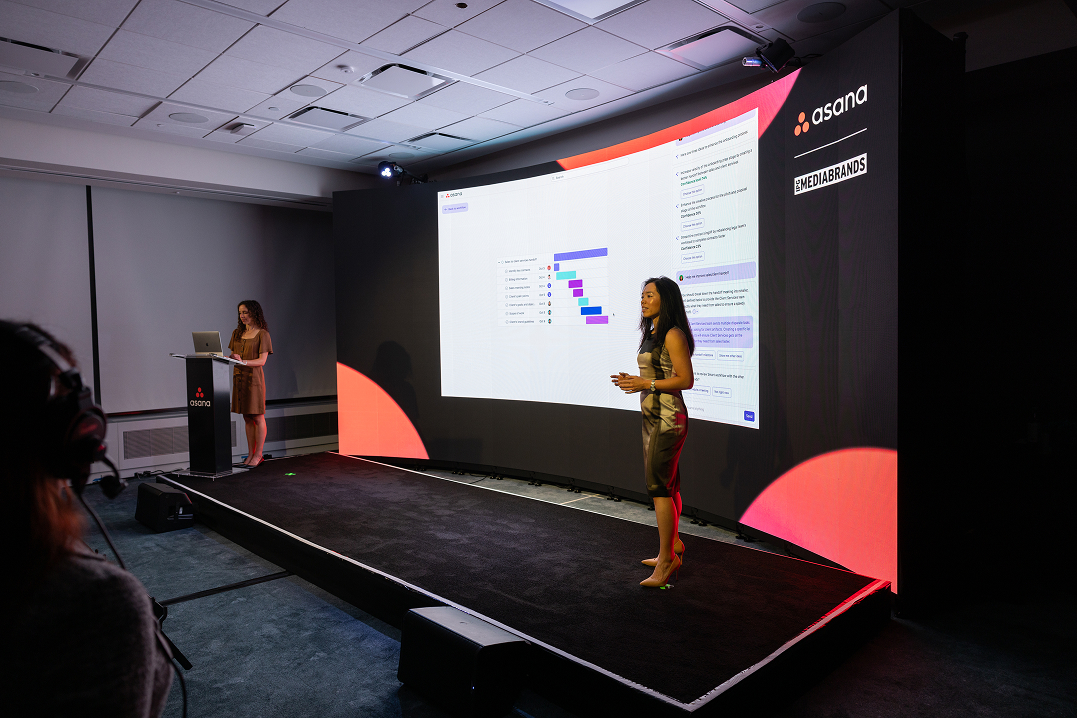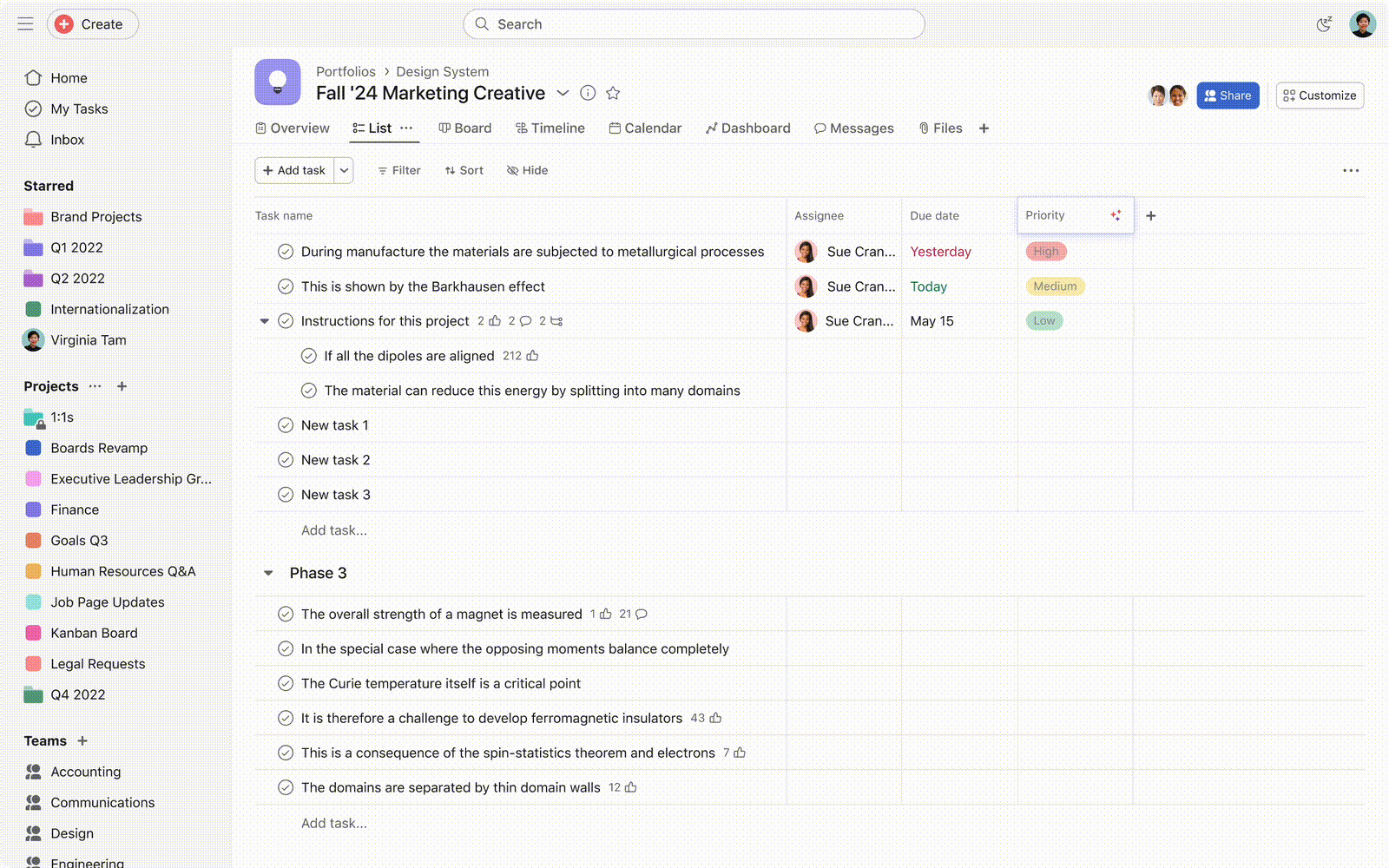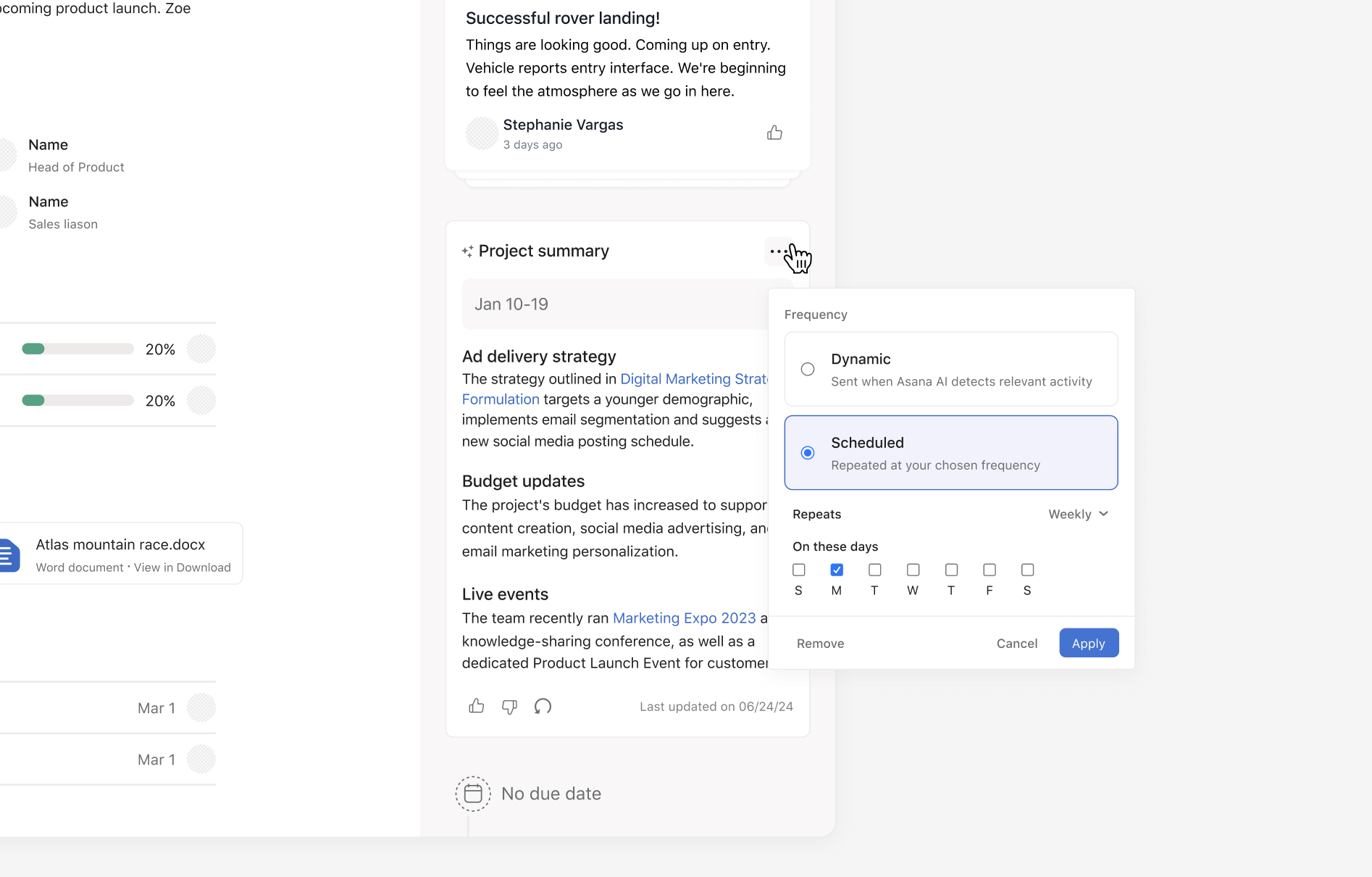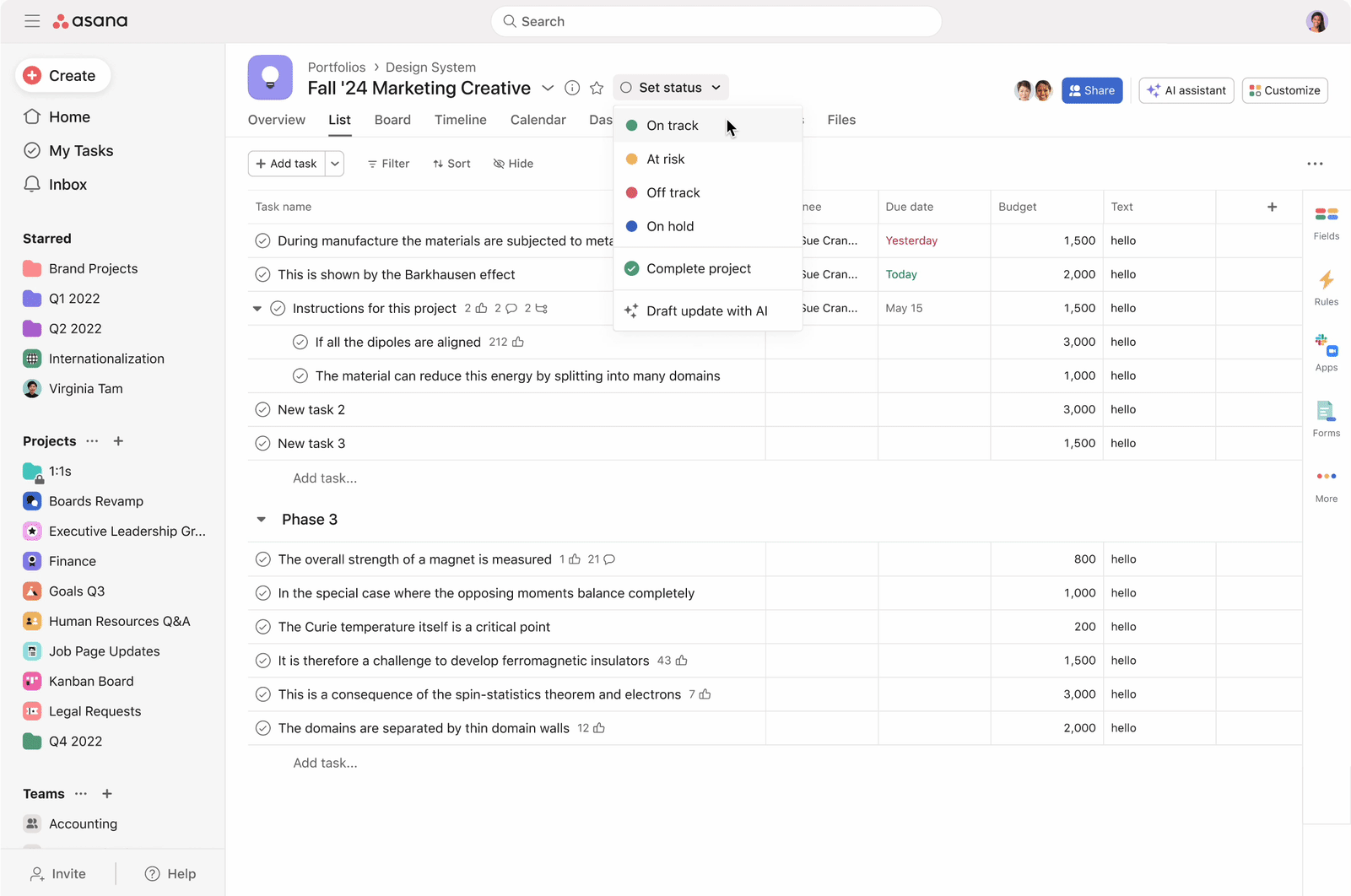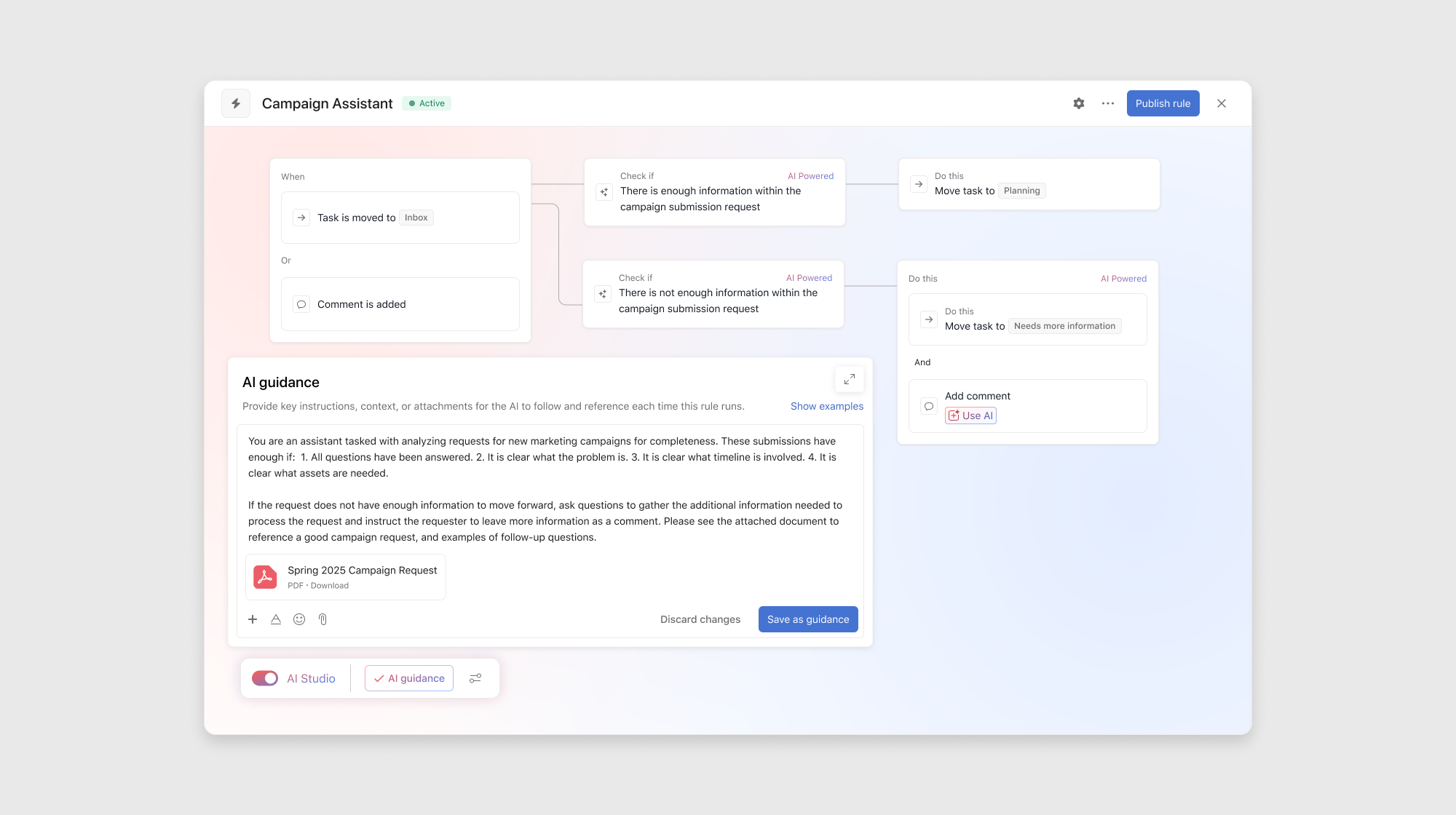May 2023
AI was emerging as a major shift, and Asana needed a vision.
At the time, there wasn’t as much literacy in AI, even at a tech company like Asana. Our R&D org pulled together a small handful of designers, including myself, to conduct an intense 2 week sprint to create a vision for AI at Asana to inspire our workforce to dream of what’s possible.
Role
Designer on a small vision team
Audience
Asana’s internal R&D organization
Leadership Involvement
Presented & received iterative feedback from our Chief Product Officer and Head of Design
This project highlighted an interesting challenge in AI product development: the gap between what we envision AI can do versus what's technically possible expands and contracts over time. As new advancements emerge, technical possibilities begin to catch up with our vision, creating new opportunities for innovation.
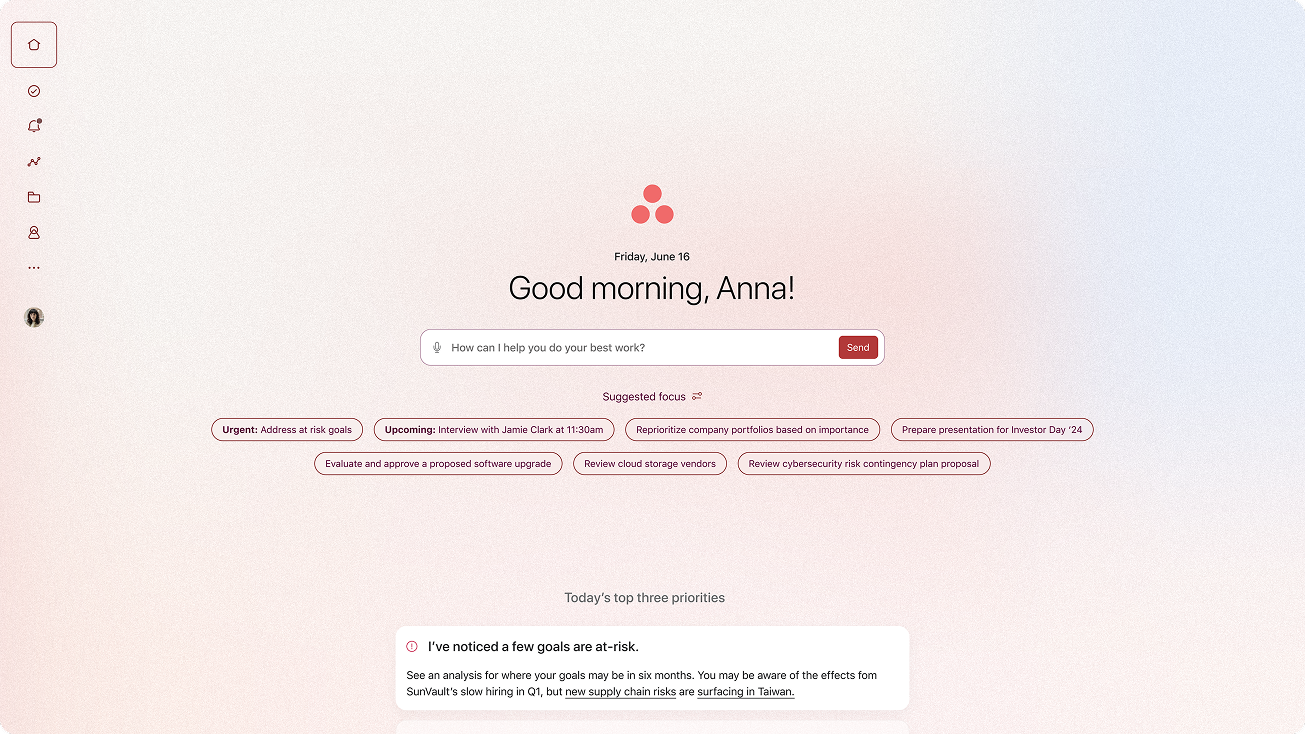
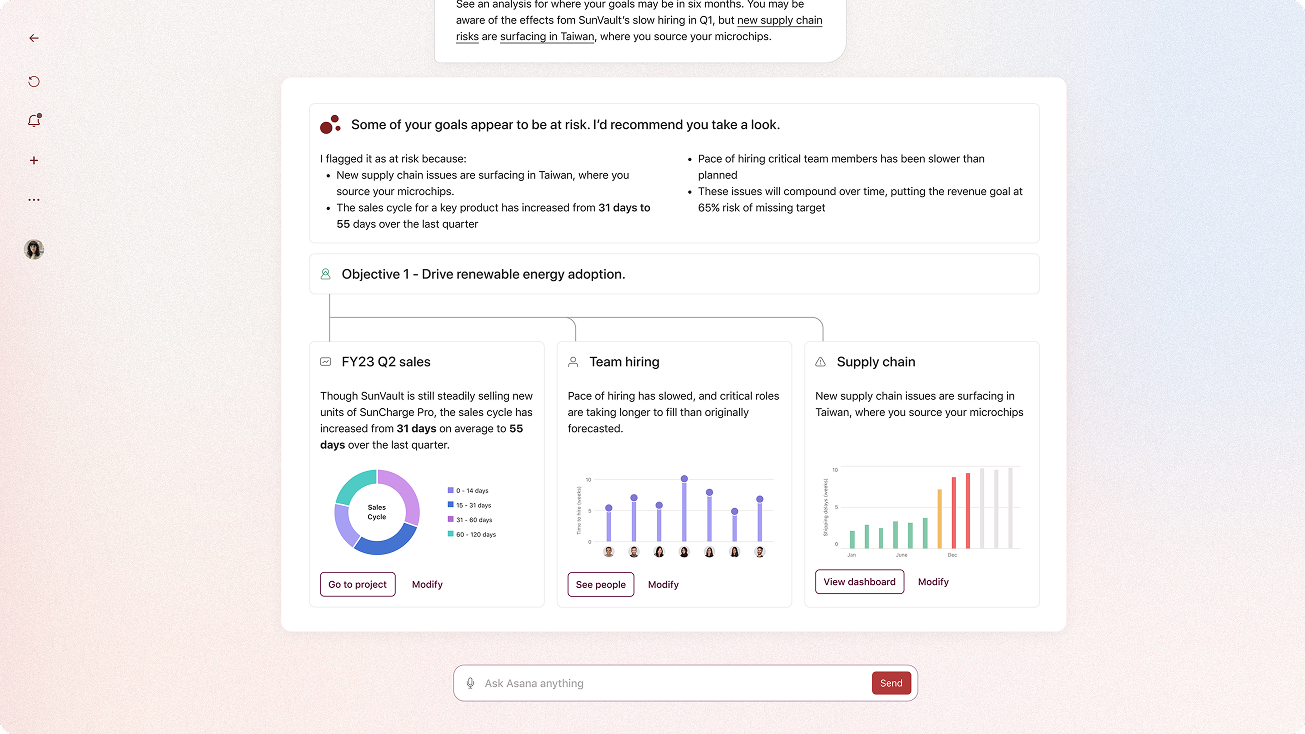
This work was shared frequently with our entire R&D team, to help try and steer the ship towards AI-centric thinking.
August 2023
Asana needed to inspire executives and investors about AI’s role in the future of work.
The Work Innovation Summit (WIS) was our chance to introduce Asana’s AI vision to the world as we as an organization tried to move upmarket, targeting executive buyers and investors. This vision needed to be both aspirational and tangible.
Role
Sole designer chosen to work on this project
Audience
Investors and executive buyers
Leadership Involvement
Partnered directly with our Chief Product Officer and Head of Corporate Marketing to shape a cohesive, visually compelling story.
This work was an evolution of some of the concepts from our vision sprint, but brought to maturity and grounded in actual use cases for some of our largest clients. We needed to create a compelling vision that acutely solved problems that the executives in the audience felt in their day to day work, and show them how Asana + AI could transform the way they work and plan.
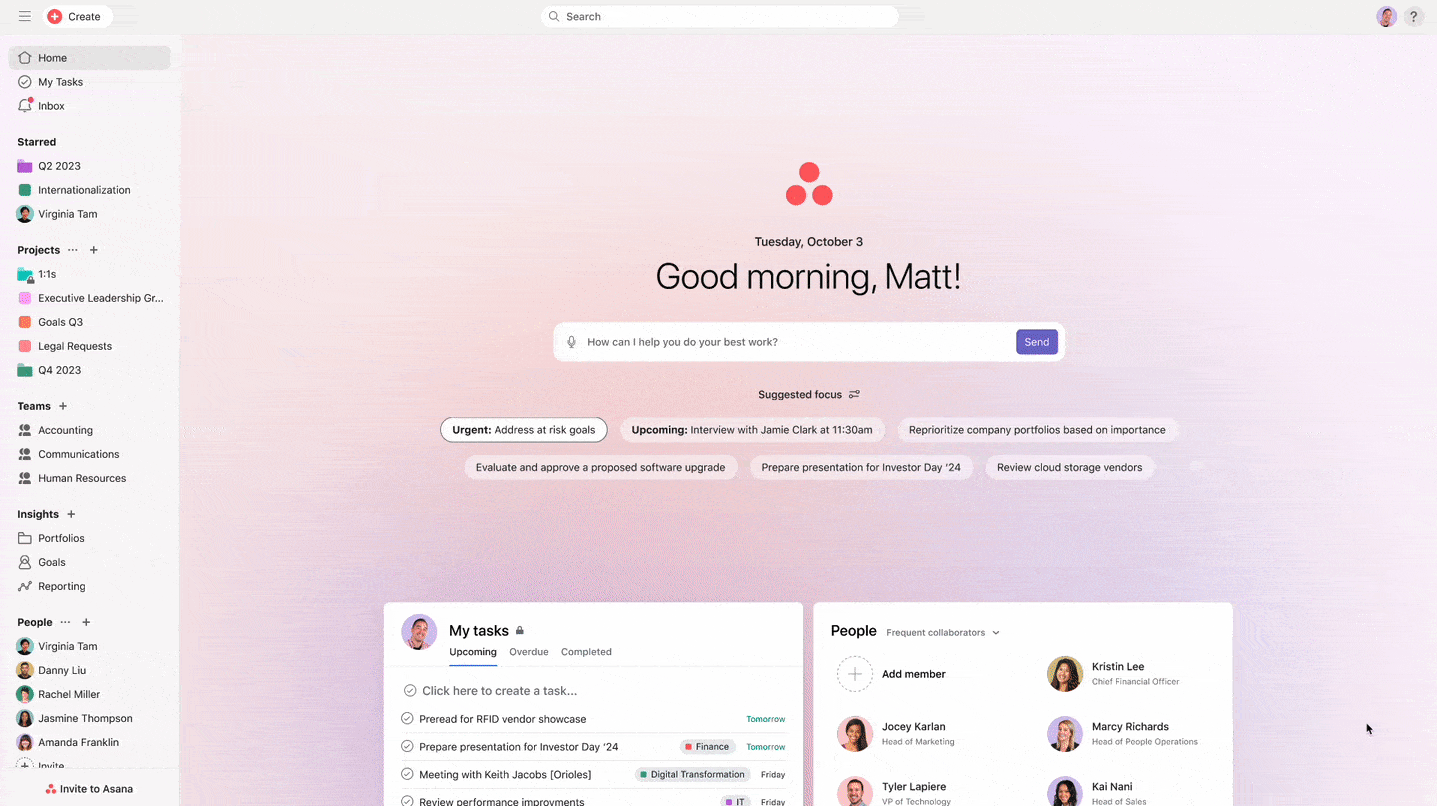
A message shared around the world
Asana had never put on an event like this, where design-led visions were at the center of the conversations. Full interactive prototypes that I built were used in our keynote addresses, and this event started to show that Asana had a strong vision for how work and AI come together. The first Work Innovation Summits took place in NYC and London, and now is an annual event with events happening in NYC, Sydney, Tokyo, San Francisco, Paris, Frankfurt, Melbourne, and London.
This work and event was a core piece of our messaging for 2023 and 2024, serving as a main talking point of our CEO Dustin Moskovitz in our Q4 and FY24 earnings call.
Impact of our first two events
These efforts directly contributed to a significant business impact, generating $10.6 million in Pipeline and $1.5 million in Annual Recurring Revenue (ARR) from the Work Innovation Summit events.
October 2023
Asana made room for a new AI orgization. We now needed to go from concept to roadmap.
Even though the vision we presented at WIS was closer to what was possible, we hadn’t yet staffed a team to build any of it. That changed with a reorg, and I was one of 3 product designers chosen to be the founding members of this new team.
We knew we wanted to deliver on a big vision, but we needed to make the right incremental changes to identify what our product/market fit actually was in the world of AI and work management, as users adapted to emerging patterns interacting with AI. There were a lot of ideas that we tried. Some of them were quite successful and well adopted, and some ended up simply being experiments that we tried and learned from.
Unblocked Proactive AI Suggestions
We needed to figure out the right level of "noisiness" when introducing proactive AI suggestions to people's work. After a few experiments, my "ghosted value" solution for recommended Custom Fields led to a 6% increase in Custom Fields added.
Found fit with AI Reporting
Project and Portfolio AI Summaries have a 60% conversion rate from single to repeat usage. This was achieved by heavily QAing our prompting to ensure the right level of detail in outputs to make each summary highly valuable, and making subscribing to recurring insights easy.
"I was actually blown away. At the Work Innovation Summit, you were rolling out being able to make AI summaries on projects. As an executive, I am context switching constantly. So I need the TL;DR all the time, and no one likes making those. Just getting that automated, and for free, was like magic. I have to generate that for the CEO every week, it takes a ton of my time to organize and write that every week, so that feature was amazing for me."
—Lee Ott, Head of AI, HP
Proactive Suggestions on Goals
We had an extremely high rate of success on our proactive goals suggestions. We realized that this was because we provided an opinion on what we believe a "good" goal looks like (using the "SMART goals" framework), and crafted an experience around this. A major learning from this feature was that sometimes users want AI to be flexible and generative, and other times it's more useful to have a strong opinion on how something "should" be and let AI power the experience to make it more personal.
Formatting for AI-generated Status Updates
Writing status updates is one of the clearest ways that AI can provide value in a system like Asana, and it's easily a favorite of manager and above Asana users. However, users noted that AI doesn't always format things how they would prefer. We introduced the ability to provide structural guidance for AI, and tried introducing easy-apply simple format suggestions. We noted that some suggestions gained signficantly more usage than others, leading to us iterating on how users want to receive formatting suggestions.
A major takeaway
As we experimented and iterated on how to incorporate AI into Asana's product, we were able to find some ways to add value to the day-to-day experience of many individual users. However, it always felt like an uphill battle to get the level of usage and power we were really looking for. After we started to explore how AI might fit in to our rule automation builder, we started to see the potential for AI doing incredibly powerful work for PMO customers. We realized we could start to build a business around one person setting up something that’s incredibly valuable for many, and not have to build features that had super high daily active usage. This realization led to a whole new team getting staffed, and our entire business pivoting to launch what we considered our first step into becoming a multi-product business: AI Studio.
